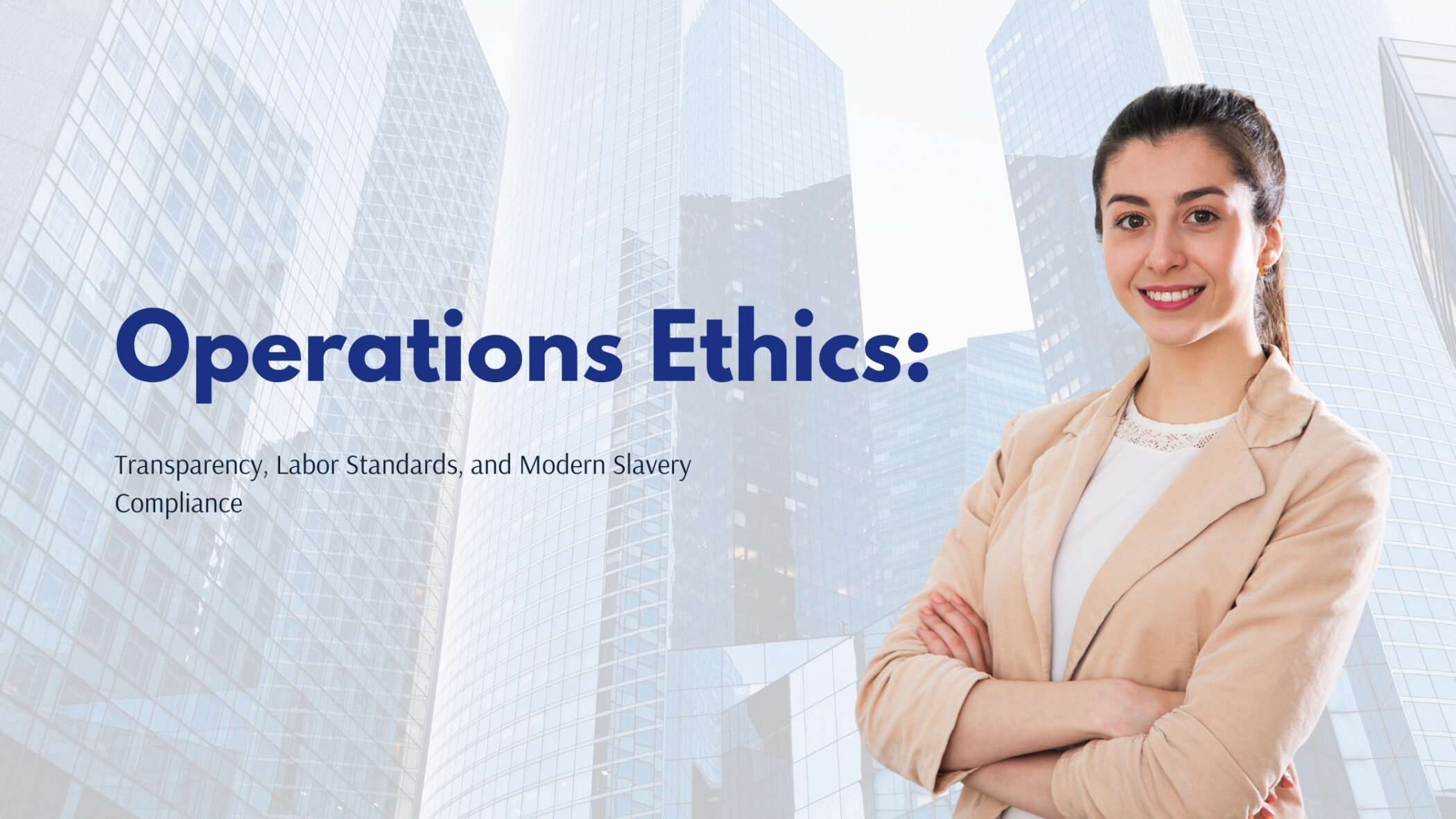In 2025, operations leaders face a new reality: ethics in the supply chain is no longer a “soft” topic. Governments are enforcing stricter regulations, investors are scrutinizing ESG reports, and customers expect proof — not promises — of responsible operations.
From transparency in sourcing to labor rights enforcement and modern slavery prevention, operational ethics has moved to the top of the management agenda.
Why This Matters Now
Regulatory Tightening:
The EU’s Corporate Sustainability Due Diligence Directive (CSDDD) is entering its enforcement phase, requiring large companies — and those in their supply chains — to identify, prevent, and address human rights and environmental harm. Similar legislation is advancing in the US, Australia, and Japan.
Investor Pressure:
Institutional investors are actively screening portfolios for human rights risk, forcing operational leaders to provide verifiable data on labor standards.
Reputational Risk:
A single exposé of unsafe working conditions or forced labor in a supplier’s facility can destroy years of brand equity — and customers now expect swift, transparent remediation.
The Three Pillars of Ethical Operations
Transparency in the Supply Chain
- Map the supply chain beyond Tier 1 suppliers.
- Use digital traceability platforms to link raw materials to finished goods.
- Disclose both successes and gaps in annual sustainability or operations reports.
Enforcing Labor Standards
- Implement third-party labor audits with unannounced inspections.
- Provide grievance mechanisms for workers across the supply chain.
- Partner with NGOs for training on safe working practices.
Modern Slavery Compliance
- Establish a formal policy aligned with international conventions (ILO, UN Guiding Principles).
- Train procurement and compliance teams to spot risk signals (e.g., excessive recruitment fees, document confiscation, debt bondage).
- Ensure remediation plans prioritize worker welfare — not just contract termination.
Practical Steps for 2025
Integrate Ethics into Procurement KPIs: Shift focus from “lowest cost” to “lowest ethical risk.”
Leverage Technology for Verification: Blockchain, IoT tracking, and AI risk-scoring tools can flag potential abuses earlier.
Embed Cross-Functional Responsibility: Ethics is not the sole role of compliance — operations, HR, and logistics teams must be involved.
Engage with Regulators Early: Proactive dialogue can shape compliance strategies and reduce penalties in case of violations.
By 2030, the expectation will be full-chain transparency — with real-time reporting on labor conditions and environmental impacts. Companies that invest in robust, verifiable ethics practices today will not only avoid penalties but also gain a competitive advantage in securing contracts, talent, and customer loyalty.
Operations ethics is no longer about “doing the right thing” — it’s about operational survival in a transparent world.


